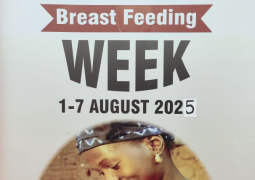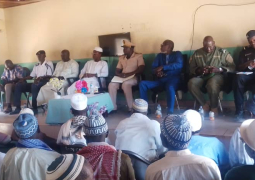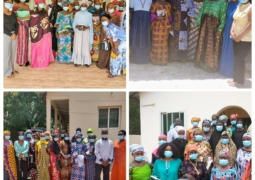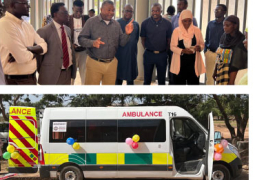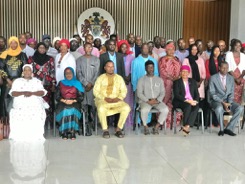
The country programming framework addresses the organization’s strategy and mandate, national priorities, and the United Nations Sustainable Development Cooperation framework.
Moshibudi Rampedi, FAO Gambia Country Representative expressed appreciation to the Gambia Government for its firm commitment and priority towards agricultural and natural resources development as well as food and nutrition security.
She highlighted that the Country Programming Framework 2017 - 2021 which was extended to 2023 has its impact while also looking ahead to the next cycle (2024 to 2028).
For the next five years, Ms. Moshibudi said FAO will follow the objectives of Gambia’s Green Recovery Focused National Development Plan (2023-2027) and the UN Cooperation Framework.
She added that the current CPF built on the achievement and lessons learned from the previous cycle, the evolving context, and priorities of the government, particularly increasing emphasis placed on key roles that agriculture and related areas play in the fight against poverty and hunger.
Momodou S. Jallow, representative of the Ministry of Fisheries, Water Resources and National Assembly Matters said FAO’s support to the fisheries sector is in line with fisheries objectives that include strengthening the capacities of the fisher folk particularly women who constitute 80% of the post-harvest operators.
He added that, FAO Fisheries Technical Cooperation (TCP) project intervention has contributed tremendously to the development of the capital assets of communities and created an environment of trust and partnership among community groups in several aspects including decision-making.
“The importance of the fisheries sectors in The Gambia cannot be overemphasised. The Government is fully determined to see to it that the fisheries sector of The Gambia succeed in meeting the Green Recovery-Focused National Development Plan (2023-2027) objectives,” Mr. Jallow alluded.
Seraphine Wakana, United Nations’ Resident Coordinator in The Gambia said the CPFs serve as vital tools for FAO.
She reflected on their accomplishments over the past years, and also explained persistent challenges such as adverse effects of climate change, recurrent droughts and floods which continue to pose significant threats to food security and agricultural production.
With only a few years remaining to achieve the Sustainable Development Goals, she said they face an urgent need to accelerate their actions.
Read Other Articles In National News
